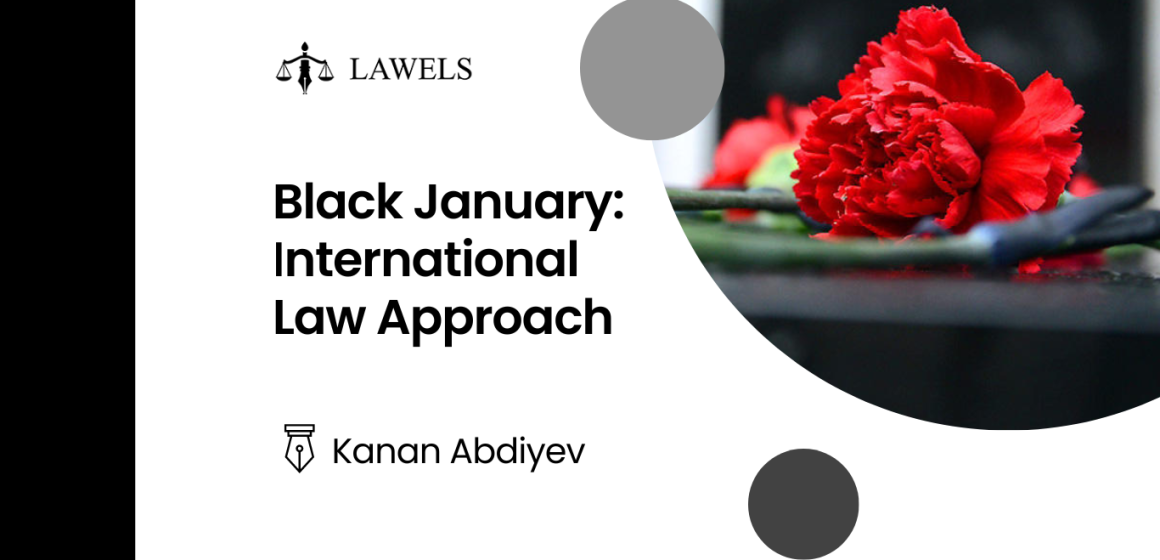A state of emergency was declared in Baku and other locations in the Azerbaijani SSR on 19 January 1990, according to a proclamation signed by Mikhail Gorbachev and authorized by the Presidium of the Supreme Soviet of the USSR. On 20 January 1990, the illegal entry of Soviet army units into Baku and a number of regions of the Azerbaijani SSR and the slaughter of the civilian population was one of the bloodiest acts committed by the totalitarian regime, a crime directed against all humanity.
The investigative group of the USSR General Prosecutor’s Office under the leadership of Justice Colonel V. Medvedev carried out the investigation of criminal incidents very superficially, and the investigation came to the conclusion that there was no criminal element in the actions of the soldiers. At that time, the Prosecutor’s Office of the Soviet Republic of Azerbaijan had not started prosecution related to the committed criminal events.
The investigation and results of this crime show that the actions of the leaders of the USSR and the Soviet military contingent have all the signs that were condemned in the Nuremberg trials. The Nuremberg trial was the first international court in history to declare aggression the most serious crime. In 1945-1946, according to the decision of the international tribunal which went down in history as the Nuremberg process, Germany’s top state and military officials were accused of preparing and carrying out issues such as the slaughter of the civilian population, brutal treatment of it, and looting of public and private property.
Approaching this incident as aggression, which is an international crime from an international legal point of view, can be considered appropriate in terms of the nature of the events and the objective elements of the crime. Article 8bis adopted at the Kampala Review Conference defines the crime of aggression. Article 8bis defines aggression as “the planning, preparation, initiation or execution, by a person in a position effectively to exercise control over or to direct the political or military action of a State, of an act of aggression which, by its character, gravity and scale, constitutes a manifest violation of the Charter of the United Nations. The States Parties understood this to mean that “the three components of character, gravity and scale must be sufficient to justify a ‘manifest’ determination,” and that “no one component can be significant enough to satisfy the manifest standard by itself.” The second paragraph of Article 8bis defines an act of aggression as “the use of armed force by a State against the sovereignty, territorial integrity or political independence of another State, or in any other manner inconsistent with the Charter of the United Nations. Additionally, According to the Definition of Aggression General Assembly resolution 3314 adopted by the UN General Assembly on 14 December 1974, Aggression is the use of armed force by a State against the sovereignty, territorial integrity or political independence of another State, or in any other manner inconsistent with the Charter of the United Nations.
The actus reus of this crime is the use of armed force, and the other is the illegal action and inaction directed against the sovereignty, territorial integrity or political independence of the state. By definition of the crime of aggression, sovereign states are recognized as aggressors and victims of aggression. According to the Constitution of the former USSR and the agreement on the establishment of this institution, Azerbaijan Soviet Socialist Republic was a de jure sovereign state, and such a military intervention provides a fully legal basis for concluding that it is a gross violation of its sovereign rights.
To conclude, the perpetrators of international crimes cannot evade responsibility even after years have passed, and they must be brought to justice. There are many precedents in international criminal law related to this case. From this point of view, it is not too late to publicize the events of Black January as an international crime and punish the criminals.
Sources:
- Report of the Working Group by H.R.H. Prince Zeid on the Crime of Aggression –https://asp.icc-cpi.int/sites/asp/files/asp_docs/RC2010/RC-11-Annex.III-ENG.pdf
- Understandings regarding the amendments to the Rome Statute of the International Criminal Court on the crime of aggression – https://asp.icc-cpi.int/sites/asp/files/asp_docs/Resolutions/RC-Res.6-ENG.pdf
- DEFINITION OF AGGRESSION GENERAL ASSEMBLY RESOLUTION 3314 – https://legal.un.org/avl/pdf/ha/da/da_ph_e.pdf
- Introductory Note about Crime of Aggression by Elizabeth Wilmshurst – https://legal.un.org/avl/ha/da/da.html
- Punishing Aggression as a Crime Against Humanity: A Noble but Inadequate Measure to Safeguard International Peace and Security by Chet Tan – https://digitalcommons.wcl.american.edu/cgi/viewcontent.cgi?referer=&httpsredir=1&article=1804&context=auilr
The articles on the LAWELS platform are not, nor are they intended to be, legal advice. You should consult a lawyer for individual advice or assessment regarding your own situation. The article only reflects the views of the author.


